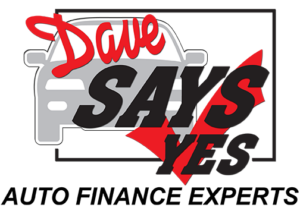
So, you are a first-time car buyer?
Your first car purchase is a milestone moment filled with excitement and anticipation. Whether you’re a college student, a young professional, or a new driver, this purchase marks a significant step toward independence and responsibility. However, it can also be overwhelming with the array of options and considerations involved. In this guide, we’ll walk you through everything you need to know to make a well-informed decision about your first vehicle.
The Research Phase
Determining the Right Vehicle Type
The type of vehicle you choose should align with your lifestyle and needs. Are you commuting long distances or just zipping around town? Do you need extra space for friends or gear? A compact sedan might be perfect for city driving, while an SUV might suit those who need more space or drive in varying weather conditions. Take a moment to consider how you’ll use your vehicle daily.
Think about fuel efficiency, especially if you’re on a tight budget. Research different models and their performance in this area to find a balance between functionality and economy. Websites like Consumer Reports or Edmunds can provide valuable insights into the best options for new buyers.
Budgeting for Your Purchase
Setting a realistic budget is crucial. Remember, the purchase price isn’t the only cost to consider. Factor in insurance, registration, maintenance, and fuel costs to comprehensively understand your monthly expenses. Use an online car loan calculator to estimate your monthly payments based on various down payments and interest rates.
Setting aside a contingency fund for unexpected repairs or expenses is also wise. This foresight can prevent financial strain and ensure you enjoy your new vehicle without stress.
Pre-Purchase Checklist
Inspecting and Test Driving
Before making any commitment, inspect the vehicle thoroughly. Look for signs of wear and tear, rust, or any other issues that could lead to costly repairs. A test drive is crucial—ensure the car is comfortable and performs as expected. Pay attention to the brakes, steering, and alignment during the drive. Your Dave Says Yes salesperson wants you to find the right vehicle.
Ask if you can take the car to a trusted mechanic for an independent inspection. This third-party assessment can provide peace of mind that no hidden problems are lurking under the hood.
Checking Vehicle History Reports
For used cars, obtaining a detailed vehicle history report is non-negotiable. Services like Carfax or AutoCheck can reveal important information such as previous accidents, title history, and service records. This data can help you avoid vehicles with a history of major problems and ensure you’re making a sound investment.
Financing and Negotiation
Exploring Financing Options
Financing your first car can be daunting, but there are options tailored for first-time buyers. Consider traditional bank loans, credit unions, or dealership financing. Each has pros and cons, so comparing interest rates and terms is essential.
Specialized services like Dave Says Yes offer flexible financing solutions, especially for buyers with less-than-perfect credit. They focus on helping buyers with bad or no credit, ensuring they can secure a loan that suits their circumstances.
Mastering the Art of Negotiation
Negotiating the price of a vehicle can save you hundreds or even thousands of dollars. Enter the discussion armed with research—know the car’s market value you’re interested in, and be prepared to discuss any flaws or areas for negotiation. Don’t be afraid to walk away if the deal doesn’t meet your expectations.
Remember, buying a car is a significant investment, and you deserve to feel confident in your purchase. Practice your negotiation skills or bring someone experienced with you for support.
Making the Purchase
Completing the Purchase Agreement
Once you’ve settled on a price, it’s time to finalize the deal. Review the purchase agreement carefully. Ensure all terms match what was agreed upon, and look for any additional fees or charges. Don’t hesitate to ask for clarification on anything that seems unclear.
Understand your rights and responsibilities before signing. This is a binding contract, so make sure you’re fully informed about all aspects of the agreement.
Vehicle Registration and Insurance
After purchasing your first car, registering it is the next crucial step. Visit your local Department of Motor Vehicles (DMV) to handle the paperwork. You’ll need proof of ownership and insurance, so have these documents ready.
Insurance is mandatory, and you might face higher premiums as a first-time buyer. Shop for quotes to find the best deal, and consider factors like coverage options and deductibles to get a policy that fits your needs.
Post-Purchase Tips
Maintaining Your Vehicle
Regular maintenance is key to keeping your car running smoothly. Follow the manufacturer’s recommended service schedule and address any issues promptly. Basic tasks like oil changes, tire rotations, and brake inspections can prevent more significant problems down the line.
Document your car’s maintenance history. This record can enhance your car’s resale value and help mechanics diagnose issues more effectively.
Building a Good Driving Record
Your driving record impacts your insurance rates and can influence future financing options. Drive safely and responsibly to avoid accidents and tickets. Many insurance providers offer discounts for clean records, so there’s a financial incentive, too.
Consider taking a defensive driving course. It’s a great way to improve your skills and demonstrate responsibility to insurers.
Enjoy The Moment
Purchasing your first vehicle is a thrilling experience that opens the door to new adventures and responsibilities. By following this guide, you can confidently approach the process, making informed decisions every step of the way. Remember, Dave Says Yes is here to support first-time buyers with tailored financing solutions, ensuring everyone can drive away happy.
